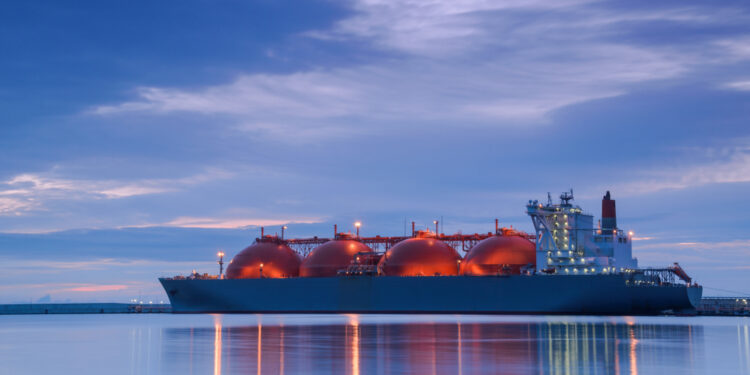A new UCL study, released at the Marine Money conference taking place during New York Climate Week, found that, if policies that incentivise shipping to decarbonise in line with the Paris Agreement were in place by the end of the decade, the LNG-capable fleet would compete with zero emissions shipping, whilst also being incentivised to switch away from the use of fossil fuel.
Whilst policy and competition would affect all ships built to use fossil fuels, the analysis suggests that more expensive LNG-capable assets (also known as LNG dual-fuel) would see reductions in their value to match the value of similar aged but lower cost conventional vessels designed to use fuel oil.
Marie Fricaudet (UCL Energy Institute), lead author and PhD student, said:
The findings highlight that the risk of stranded assets is also very material in the shipping sector. The longer we leave the LNG transition running and then switch, the more painful it will be and technology lock-in during this crucial decade will create more resistance to change later.
Key highlights
- Investments in LNG as a marine fuel could waste nearly $1 trillion of capital by 2030
- $850 billion is at risk of being stranded by 2030if the industry continues investing in LNG to power ships
- LNG is a fossil fuel that can delay shipping’s zero- emission transition
- Shipowners, governments and financiers can avoid stranded LNG assets by investing in conventionally powered ships able to switch to scalable zero-emission fuels in the future, like green hydrogen and ammonia
The report shows a boom in the ordering of LNG vessels over recent years, with 65% of the newbuilding deliveries by 2025 being capable of running on LNG as a marine fuel, up from only 10% a couple of years ago. Yet, the size of the LNG-capable fleet (by cargo carrying capacity and number of ships) is currently small, therefore there is still time to anticipate regulatory and technology developments and manage exposure to a class of assets that may be particularly exposed to stranded value risk (that is, their economic return may not last as long as expected).
Co-author Dr Tristan Smith (UCL Energy Institute) said: “As this decade proceeds, we will continue to experience more and more severe impacts from climate change. This will further grow pressure both in markets and policy negotiations to align assets to a rapid shift to zero emissions. Anticipating this pressure is straightforward, and whilst the best solutions for zero emissions international shipping are still emerging, it is already clear that LNG-capable shipping is not well positioned and faces a higher risk of stranded value during the transition.”
The study argues that governments should not use public funding to exacerbate the creation of stranded value and identifies methods that investors can use to identify the risks posed by climate change on shipping assets.
Shipowners and financiers should consider not ordering LNG-capable ships and investing in conventionally fuelled ships which are designed for retrofit to zero-emission fuels. For existing LNG-capable ships, investors should consider ways to manage the risk of stranded value – e.g. factoring in the cost of retrofit (or other actions to remain compliant) at the point of newbuild or using a steeper than linear depreciation curve.
..the report adds.
For policy makers the report asks for urgency and clarity of future regulations, especially around when and how methane emissions will be considered, to help investors in both existing ships and newbuilds consider and anticipate the potential impact of regulation.






























































